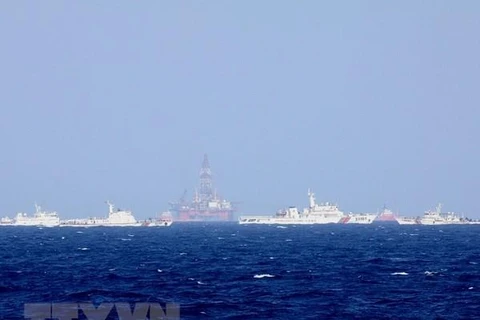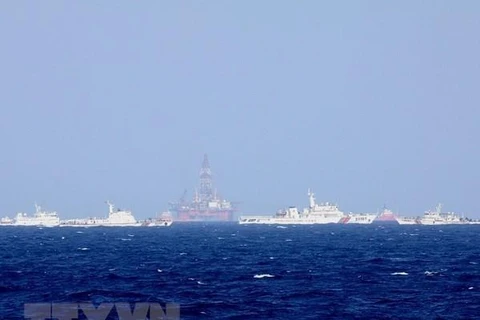Brussels (VNA) - China's sovereignty claims over most of the areas in the East Sea are invalid in legality and its unilateral actions in the sea are illegitimate, a Belgian expert of international maritime law has said.
In an interview granted to VNA correspondents in Brussels on October 8, Lawyer Bernard Insel further said the Permanent Court of Arbitration (PCA) in The Hague in 2016 rejected China's claim over the so-called "nine-dash line" in the East Sea, and affirmed that China's unreasonable claims cannot change the nature of this maritime area, on the basis of the 1982 United Nations Convention on the Law of the Sea (UNCLOS 1982).
The East Sea has a strategic role with many countries and the region because it is the most bustling maritime route in the world, he stressed, adding that activities in the sea should be based on the principles of navigation freedom as well as those of international law of the sea.
Insel's comments were made in the context that many countries around the world have expressed deep concern about the rising tension in the East Sea recently as China has committed serious violations of international law, violated sovereign rights and jurisdiction and obstructed legal oil and gas activities in the exclusive economic zone (EEZ) of Vietnam and other coastal countries, especially its deployment of Haiyang Dizhi 8 and escort ships into Vietnam’s EEZ at the Tu Chinh reef (internationally known as Vanguard Bank)./.
In an interview granted to VNA correspondents in Brussels on October 8, Lawyer Bernard Insel further said the Permanent Court of Arbitration (PCA) in The Hague in 2016 rejected China's claim over the so-called "nine-dash line" in the East Sea, and affirmed that China's unreasonable claims cannot change the nature of this maritime area, on the basis of the 1982 United Nations Convention on the Law of the Sea (UNCLOS 1982).
The East Sea has a strategic role with many countries and the region because it is the most bustling maritime route in the world, he stressed, adding that activities in the sea should be based on the principles of navigation freedom as well as those of international law of the sea.
Insel's comments were made in the context that many countries around the world have expressed deep concern about the rising tension in the East Sea recently as China has committed serious violations of international law, violated sovereign rights and jurisdiction and obstructed legal oil and gas activities in the exclusive economic zone (EEZ) of Vietnam and other coastal countries, especially its deployment of Haiyang Dizhi 8 and escort ships into Vietnam’s EEZ at the Tu Chinh reef (internationally known as Vanguard Bank)./.
VNA
























